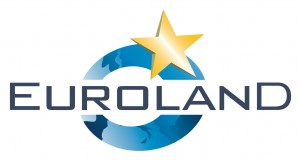{{An immense political “depression” is gaining force throughout the European electorate}}
An immense democratic/political “depression” is in the midst of being created in the very heart of European continental politics. The 200 million voters that chose not to participate in June 2004 are the proof. The Euro has broken the certainty of 350 million Europeans. Europe has entered their pockets, and seemingly, just as rapidly, entered their heads as the evidence that important decisions were escaping their national boundaries. The Euro is the link that joined tens of millions of Europeans in discovering that their work, their social system, their health system, and the economic growth of their country depended essentially on European decisions made in common, and no longer on national political parties. We have hence moved from abstentions of “disinterest” in 1999, disinterest in a Europe perceived as far away and without consequences on daily life, to abstentions of “rejection” in 2004, rejection not of European Construction but of the “political offer” presented at the time of the European Parliament’s deliberations. Caught between their hopes and their fears for the EU, Europeans are still longing for projects and visions on a continental scale. However, the national political classes much like the community’s institutional system continue to ignore this evolution. And the result is that abstentions are setting new records. The vote-sanctions are becoming the norm in European Parliamentary elections. The populists and extremists benefit mechanically from this situation: abstentions enable them to obtain important victories in terms of elected representatives even if they continue to represent only a small fraction of the entire elected body: the inconsistencies between that which is offered by the traditional national political parties and that which is needed by Europe creates a unique opportunity for the extremists to attract the attention of the electorate.
{{The democratization of Europe is the central challenge for the next stage of European Construction, i.e. continental democratic governance}}
The difference between the political “offer and need” is illustrative of the fact that the EU cannot manage its own historic transition, its passage from the phase of constructing the European Community (1951-2004), to the phase of management, and governance of the European Union. However, this change is the very proof of the founding fathers’ successful endeavor. The mission assigned to the community project in the 50s has been brilliantly accomplished. The two main challenges have been met: the continent is close to being fully unified and all European member states are democratic. However, this accomplishment appears in tandem with the emergence of the new central challenge: how to govern a community of approximately 500 million citizens with close to 30 different nationalities, languages and cultures? This is the central problem that the European Union must confront during the next twenty years. The resolution of all the other problems will depend on the capacity of the EU to respond to the question of its own democratization. Of course, the challenge is immense and without historical precedent. Neither the invention of American democracy (which took place among an homogeneous culture of a few millions people), nor the attempts at democratizing large human collectives like India or China can seriously help Europeans realize their democratic needs, needs that represent the new frontier in terms of both size and diversity.
{{Europeans confronted with the new frontier of democracy in the 21st century: Size and Diversity}}
As in many other eras of our history, the decades to come challenge Europeans to invent democratic governance on a continental level. If we are able to succeed, not only will we have been able to accomplish the transition to the second stage of European Construction thereby presenting the best hommage to our founding fathers, continuing along the path that they first created, but we will also have brought a gift to the rest of the world, and to numerous other continents that are adventuring in the same direction as Europe, an essential message, that of proving that a concrete integration of a continent and democracy is indeed possible. This mutual learning process will further contribute to facing the challenges posed by globalization that are even vaster in terms of management, size and diversity.
If the EU elite does not rapidly become conscious of the nature and magnitude of this challenge, then, the democratic depression that we feel already today may win the day potentially forcing both the EU and democracy into one of those collective catastrophes that seem to define European history.


 LEAP2040 Toutes les informations et archives Europe2040
LEAP2040 Toutes les informations et archives Europe2040


